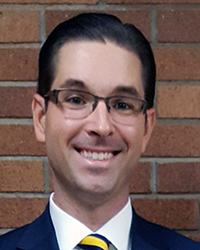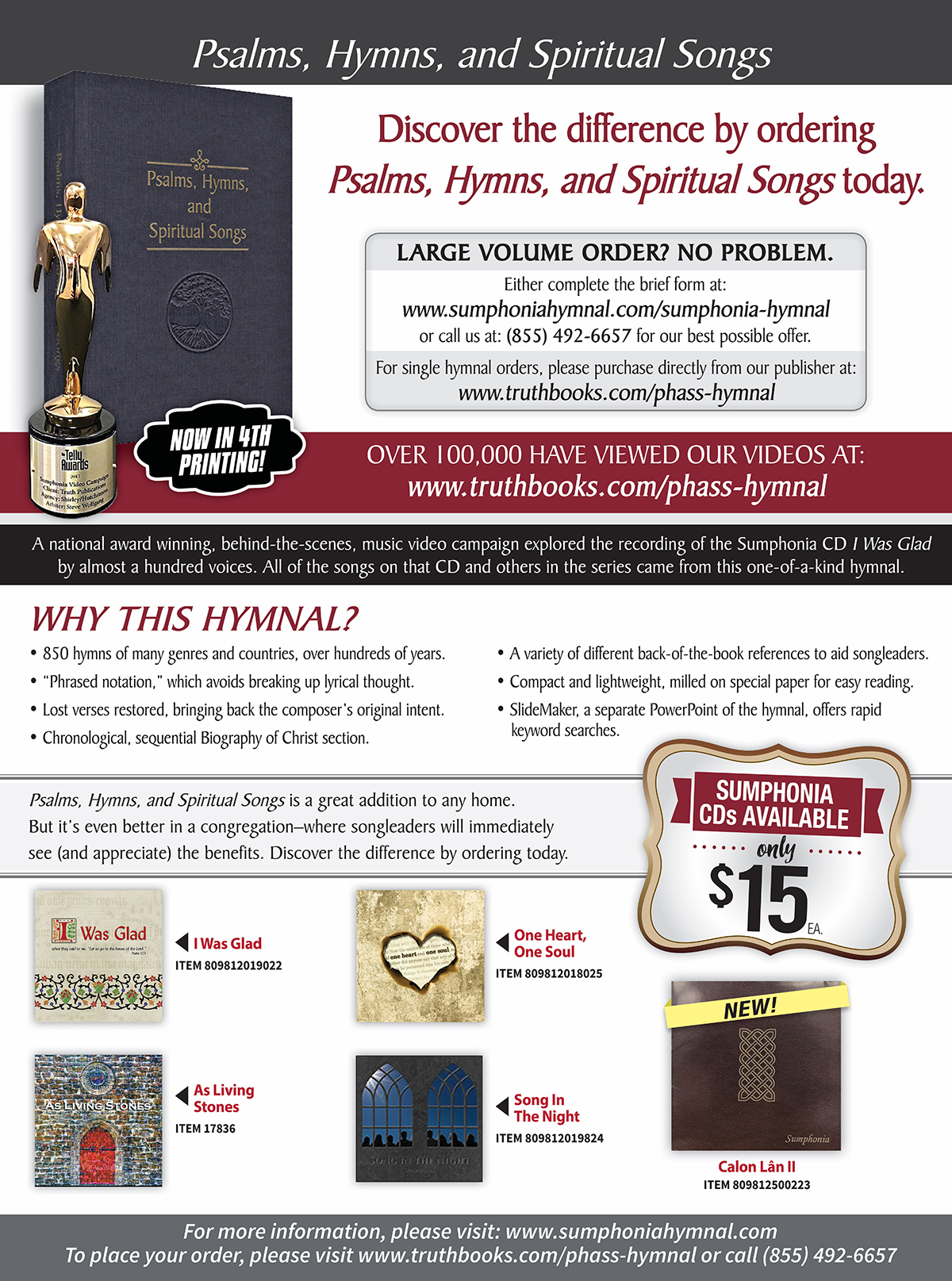

by David Flatt
Synopsis: Like prophets from the past and present dispensations, Jesus Christ offers a memorable warning of the danger of decoupling hearing and doing (Ezek. 33:31-32; Matt. 7:24-27; Jas. 1:22-25).
Therefore whosoever heareth these sayings of mine, and doeth them, I will liken him unto a wise man, which built his house upon a rock: And the rain descended, and the floods came, and the winds blew, and beat upon that house; and it fell not: for it was founded upon a rock. And every one that heareth these sayings of mine, and doeth them not, shall be likened unto a foolish man, which built his house upon the sand: And the rain descended, and the floods came, and the winds blew, and beat upon that house; and it fell: and great was the fall of it (Matt. 7:24-27).
So what is the point? Have you ever listened to someone give a speech of some sort, but not understand what he wanted you to do with the information that was presented? Sometimes this can happen to those of us who preach. Our preaching may lack clarity, but this was not true of Jesus.
Jesus' sermon was not a rabbinical dissertation on the law of Moses. He did not teach about some obscure subject which He found personally interesting. His goal was not to impress people with dynamic public speaking skills or an expansive vocabulary. His goal was to preach the gospel of the kingdom understandably so that people could do what He commanded.
Jesus wanted people to find His teaching to be more than just interesting or unique. He wanted His teaching to be more than merely heard. He wanted His teaching to be obeyed. As far as Jesus was concerned, there was a major difference between hearing and doing.
Now, to be sure, Jesus never wanted anyone to obey His teaching without first understanding His message. Our Lord took great care in teaching and bringing people to the point of understanding the life He wanted them to live. In the aftermath of this sermon, Jesus stopped two over-zealous men who thought He was ready to follow Him. He wanted them to understand the commitment and sacrifice required for discipleship (Matt. 8:19-22).
Thankfully, anyone who desired to obey Jesus could understand His message. As Jesus promised earlier in this sermon, anyone who asked, sought, and knocked would find the kingdom (Matt. 7:7-8). The kind of understanding Jesus spoke of stemmed from desire. A common saying of Jesus was, "He that has an ear, let him hear" (Matt. 11:15; 13:9, 43). If a person wanted to understand Jesus, he could understand and obey.
Jesus' teaching was and remains distinctively different from anything anyone had ever heard; however, hearing Jesus was not the problem. With a little time and effort, we can understand Jesus and His commands. For example, notice how the disciples reacted when Jesus gave commands concerning forgiveness: "Take heed to yourselves: If thy brother trespass against thee, rebuke him; and if he repent, forgive him. And if he trespass against thee seven times in a day, and seven times in a day turn again to thee, saying, I repent; thou shalt forgive him. And the apostles said unto the Lord, Increase our faith" (Luke 17:3-5). The disciples understood what Jesus taught. The challenge was not in trying to understand His message. The challenge was in doing what Jesus commanded.
Also, consider Jesus' teaching about marriage and the disciples' reaction: "And I say unto you, Whosoever shall put away his wife, except it be for fornication, and shall marry another, committeth adultery: and whoso marrieth her which is put away doth commit adultery. His disciples say unto him, If the case of the man be so with his wife, it is not good to marry" (Matt. 19:9-10). No one had ever explained marriage in this fashion. The rabbis spent their time arguing what the phrase "some uncleanness" meant from Deuteronomy 24. Jesus did none of that. Instead, He went to the beginning and focused on central issues. When He did this, the disciples understood exactly what Jesus commanded. They knew immediately that Jesus' teaching meant that they could not divorce their wives for just any cause. Hearing and understanding were not problems. Jesus was clear and precise when He instructed.
The largest challenge we face today is finding the willingness to do what Jesus commands. In this part of His sermon, Jesus says those who hear and act are wise; whereas, those who hear and do not act are foolish. Once again, Jesus clarifies the two choices we have in how we respond to what He says.
The people who listened to this sermon had a big decision to make: what to do with what Jesus said. What about us? In reading this sermon, Jesus puts the same choice before us: What will we do with what Jesus said?
Doing what Jesus commands is not always easy. This is mainly because His commands cut deeply into our hearts. This is the design of God's word generally. The Bible says, "For the word of God is quick, and powerful, and sharper than any two-edged sword, piercing even to the dividing asunder of soul and spirit, and of the joints and marrow, and is a discerner of the thoughts and intents of the heart" (Heb. 4:12). All of what Jesus said in this sermon cut deeply into the hearts of His hearers. His word calls into question the motivations of our hearts. There is nothing more personal and sensitive than questioning our motives; yet, this is the necessary first step in bringing us to the kingdom.
Doing what Jesus commands ultimately involves honest introspection, repentance, and sacrifice. Sometimes we react similarly to the apostles when they write something that we do not like. Often, we will twist what Jesus has said. We might say something like, "I know He said this, but it does not mean that." Or, we may deceive ourselves into thinking Jesus will give us a personal exemption for attitudes and behavior which conflict with what He said. Nevertheless, only through obedience to His commands will we receive the goodness His commands seek to bring our lives.
Jesus knew His teaching was unlike anything people had ever heard. Living according to His precepts was unconventional to the norms and mores of both ancient and modern society. How then could Jesus ever expect anyone to do what He said? In a word, faith.
Notice the apostles' reaction to Jesus' teaching about forgiveness and Jesus' subsequent response: "And the apostles said unto the Lord, Increase our faith. And the Lord said, If ye had faith as a grain of mustard seed, ye might say unto this sycamine tree, Be thou plucked up by the root, and be thou planted in the sea; and it should obey you" (Luke 17:5-6). The apostles recognized the need for greater faith to do what Jesus commanded, and Jesus affirmed their recognition.
On another occasion, Jesus dispelled the modern conception that the rich will be saved simply because they were rich. Jesus said, "…Verily I say unto you, That a rich man shall hardly enter into the kingdom of heaven. And again I say unto you, It is easier for a camel to go through the eye of a needle, than for a rich man to enter into the kingdom of God. When his disciples heard it, they were exceedingly amazed, saying, Who then can be saved? But Jesus beheld them, and said unto them, With men this is impossible; but with God, all things are possible" (Matt. 19:23-26).
The rich were not excluded from the kingdom, but Jesus acknowledged the difficult sacrifices they would have to make to get to the kingdom. The rich find comfort and security in their riches rather than find such peace in God. While sacrificing would be hard for the rich, it was not impossible. If they came to have faith in Jesus, they would find the resolve to make sacrifices necessary for their salvation.
In principle, the same is true today. Regardless of our backgrounds, we all will be challenged, in some area of our lives, by what Jesus has said. We will readily understand what He expects and the reasons why; however, doing what He says will challenge us. Only by faith in Jesus and His teaching will we find the strength to sacrifice, repent, and obey.
Lastly, love for Jesus and His word will enable us to do His will. Our love for the Lord comes from an awareness of His love for us. Like children and their parents, we may resist doing what Jesus says. We may view it as an affront to our lifestyles. Parents do not instruct their children to burden the lives of the children. Likewise, Jesus does not instruct us to burden our lives (1 John 5:3). Love is why Jesus instructs us, and love should be why we do what He says.
Ultimately, Jesus' teaching is given for our good. He wants to bless our lives. The apostle of love wrote, "My little children, let us not love in word, neither in tongue; but in deed and in truth" (1 John 3:18). Doing what Jesus says is an expression of our love for Him.
Love is the only acceptable motivation for doing what Jesus commanded. If we love Jesus, we will do what He said (John 14:15). He gave no other motive for doing what He commands. Jesus is not going to drag anyone to the kingdom, kicking and screaming. He leads those who love Him to the kingdom. If love is not the reason for what we do, all we do will be for nothing.
While this may seem surprising, this point is repeatedly made in the New Testament. Paul wrote, "If I speak in the tongues of men and of angels, but have not love, I am a noisy gong or a clanging cymbal. And if I have prophetic powers, and understand all mysteries and all knowledge, and if I have all faith, so as to remove mountains, but have not love, I am nothing. If I give away all I have, and if I deliver up my body to be burned, but have not love, I gain nothing" (1 Cor. 13:1-3).
Faith, by itself, is not reason enough for doing what Jesus commands. Unless faith is coupled with love, all that we do is worthless. Yes, faith can be advanced, and sacrifices made for all the wrong reasons. Sometimes people are motivated by pride, envy, and strife in their advancement of faith (Phil. 1:15). While Paul acknowledged the gospel may be preached, he did not condone the motivations of these saints. If our motivations are selfish, we need to remove them from our hearts and replace them with love (1 Pet. 2:1).
Echoing the sentiments of this sermon years later, James wrote, "Wherefore lay apart all filthiness and superfluity of naughtiness, and receive with meekness the engrafted word, which is able to save your souls. But be ye doers of the word, and not hearers only, deceiving your own selves. For if any be a hearer of the word and not a doer, he is like unto a man beholding his natural face in a glass: For he beholdeth himself, and goeth his way, and straightway forgetteth what manner of man he was. But whoso looketh into the perfect law of liberty, and continueth therein, he being not a forgetful hearer, but a doer of the work, this man shall be blessed in his deed" (Jas. 1:21-25). We must use the goodness of God's word to make wise discernments in our lives. This is the only means by which we will be blessed in this life and eternity.
The Sermon on the Mount has been described as revolutionary and transformative. While such terminology captures the potential of this message, revolution and transformation will only happen through action driven by faith and love. Hearing and doing will bring us to the kingdom. If these actions are separated, we will be excluded. Be wise. Be a doer of the word.
Author Bio: David and his family began laboring with the Fry Road Church of Christ in Houston, TX in 2019. The church website is fryroad.org. He can be reached at dflatt85@yahoo.com.

